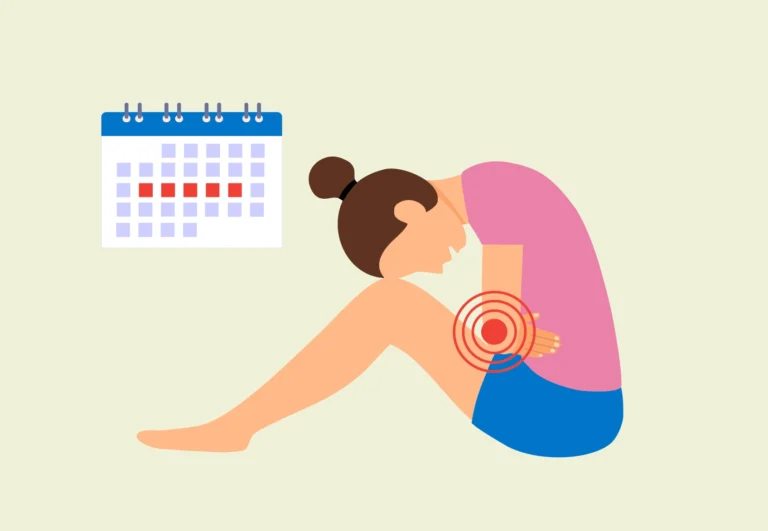Perimenopause is a transitional phase that occurs before menopause, which marks the end of a woman’s reproductive years. During perimenopause, a woman’s body undergoes various changes as the ovaries gradually produce less estrogen. This hormonal shift can cause various physical and emotional symptoms that can last for several years. In this article, we will discuss the signs of perimenopause and effective treatment options.
Table of Contents
Signs of Perimenopause:
Perimenopause typically starts in a woman’s 40s, but it can begin earlier or later. It can last for several years, and the signs can vary from person to person. The most common signs of perimenopause include:
- Irregular periods: Perimenopause can cause changes in menstrual cycles, including shorter or longer cycles, heavier or lighter periods, and skipped periods.
- Hot flashes: Hot flashes are a common symptom of perimenopause, and they can cause sudden feelings of heat, sweating, and rapid heartbeat.
- Mood changes: Perimenopause can cause mood swings, irritability, anxiety, and depression.
- Sleep disturbances: Perimenopause can cause sleep disturbances, including insomnia and night sweats.
- Vaginal dryness: Perimenopause can cause vaginal dryness, which can lead to discomfort and an increased risk of infections.
- Decreased fertility: As a woman’s body prepares for menopause, fertility decreases, and the chances of getting pregnant decrease.
- Physical changes: Perimenopause can cause physical changes, such as weight gain, bloating, and decreased breast size.
Effective Treatment Options:
While perimenopause is a natural phase of life, the symptoms can be uncomfortable and disruptive. Fortunately, there are several effective treatment options that can help alleviate the signs of perimenopause.
Hormone therapy: Hormone therapy is a common treatment for perimenopause, and it involves taking estrogen and sometimes progesterone to replace the hormones that the ovaries are no longer producing. Hormone therapy can help reduce hot flashes, vaginal dryness, and other symptoms.
Lifestyle changes: Making lifestyle changes can help alleviate the signs of perimenopause. These changes include getting regular exercise, eating a healthy diet, getting enough sleep, managing stress, and avoiding smoking and excessive alcohol consumption.
Vaginal estrogen: Vaginal estrogen is a low-dose estrogen therapy that can help alleviate vaginal dryness and discomfort during.
Antidepressants: Antidepressants can help alleviate mood swings, anxiety, and depression that can occur during perimenopause.
Herbal supplements: Some women find relief from perimenopause symptoms by taking herbal supplements, such as black cohosh, red clover, and dong quai. However, it’s important to talk to a healthcare provider before taking any herbal supplements.
Acupuncture: Acupuncture is a traditional Chinese medicine practice that involves inserting needles into specific points on the body to alleviate various symptoms, including hot flashes and mood swings.
Natural remedies
In addition to medical treatments, there are several natural remedies that can help alleviate the signs of perimenopause. Here are a few examples:
- Phytoestrogens: Phytoestrogens are plant-based compounds that mimic the effects of estrogen in the body. They can be found in foods such as soy products, flaxseeds, and legumes. Incorporating these foods into your diet may help alleviate hot flashes and other symptoms.
- Vitamin E: Vitamin E is an antioxidant that can help alleviate hot flashes and night sweats. It can be found in foods such as nuts, seeds, and leafy greens or taken as a supplement.
- Black cohosh: Black cohosh is an herbal supplement that has been shown to help alleviate hot flashes, mood swings, and vaginal dryness. However, it’s important to talk to a healthcare provider before taking any herbal supplements.
- Exercise: Regular exercise can help alleviate a variety of perimenopause symptoms, including hot flashes, mood swings, and sleep disturbances. Aim for at least 30 minutes of moderate exercise most days of the week.
- Mind-body techniques: Mind-body techniques such as yoga, meditation, and deep breathing can help alleviate stress, which can, in turn, alleviate perimenopause symptoms.
It’s important to note that natural remedies may not work for everyone and may have potential risks or side effects. It’s important to talk to a healthcare provider before trying any natural remedies, especially if you are taking any medications or have any underlying medical conditions.
Conclusion:
Perimenopause is a natural phase of life that all women go through, and it can cause various physical and emotional symptoms. However, there are several effective treatment options that can help alleviate the signs of perimenopause, including hormone therapy, lifestyle changes, vaginal estrogen, antidepressants, herbal supplements, and acupuncture. If you are experiencing symptoms of perimenopause, it’s important to talk to a healthcare provider to discuss your options and find a treatment plan that works for you.

